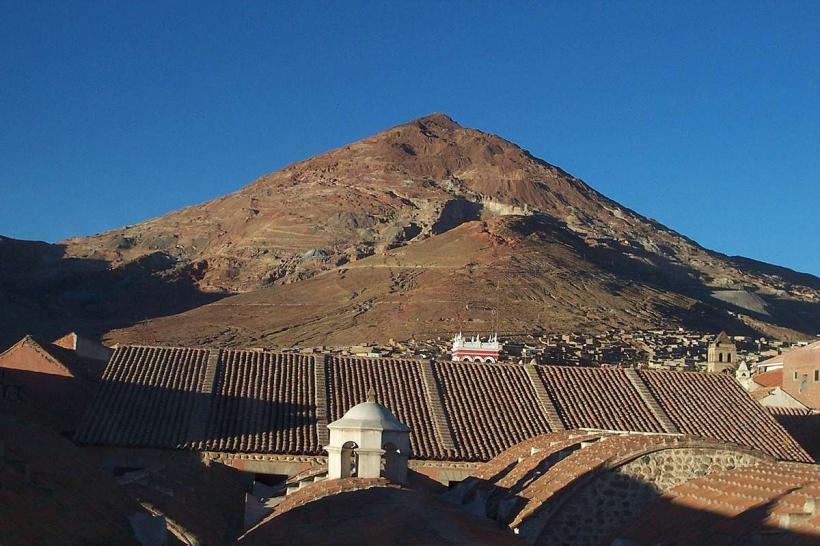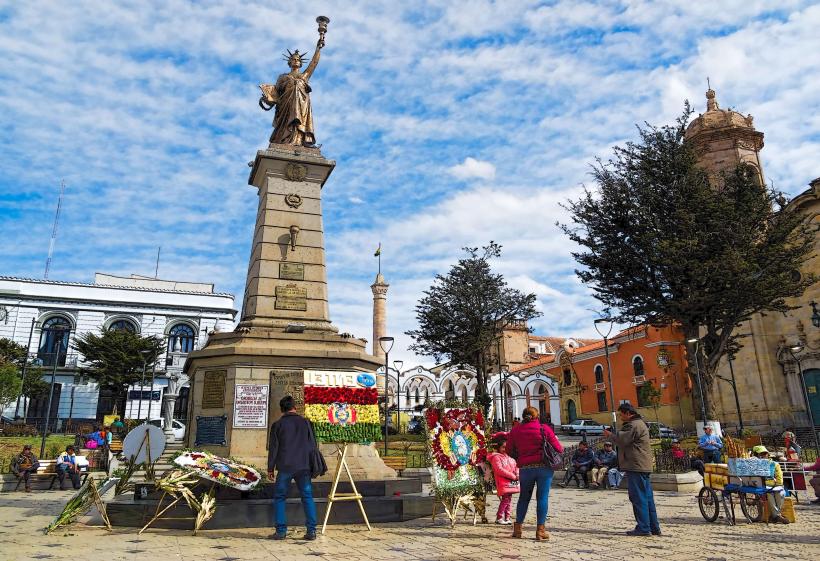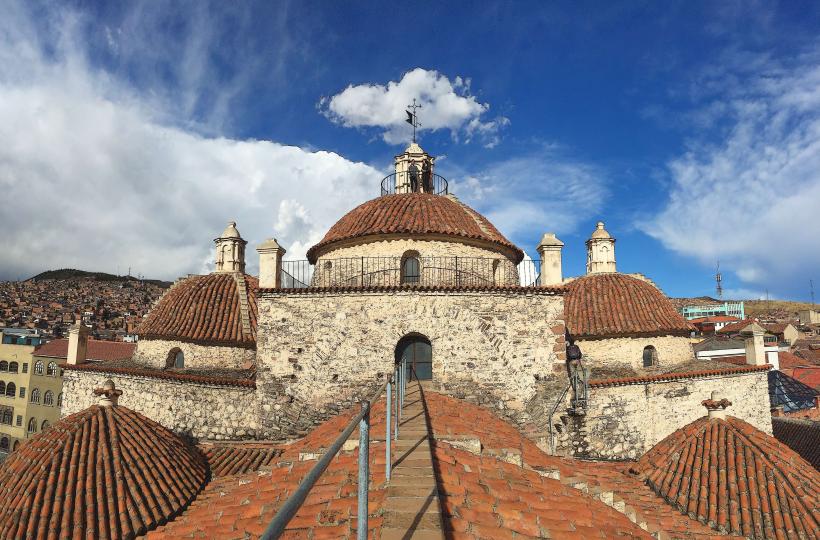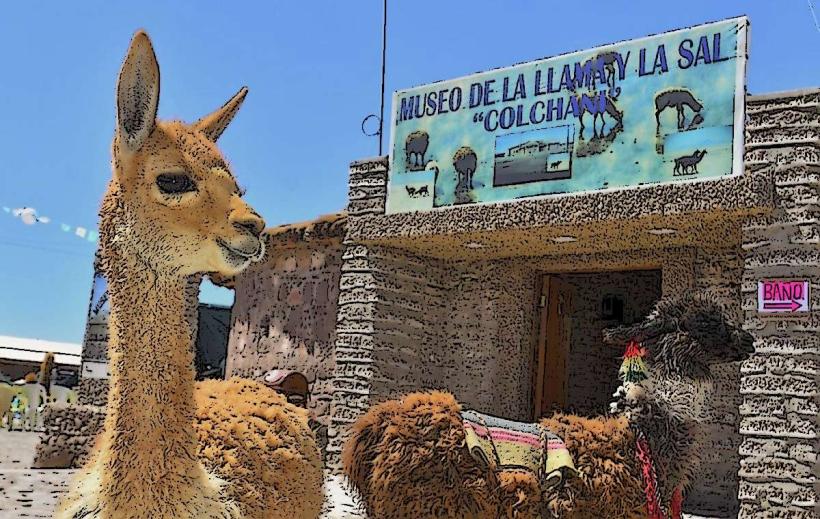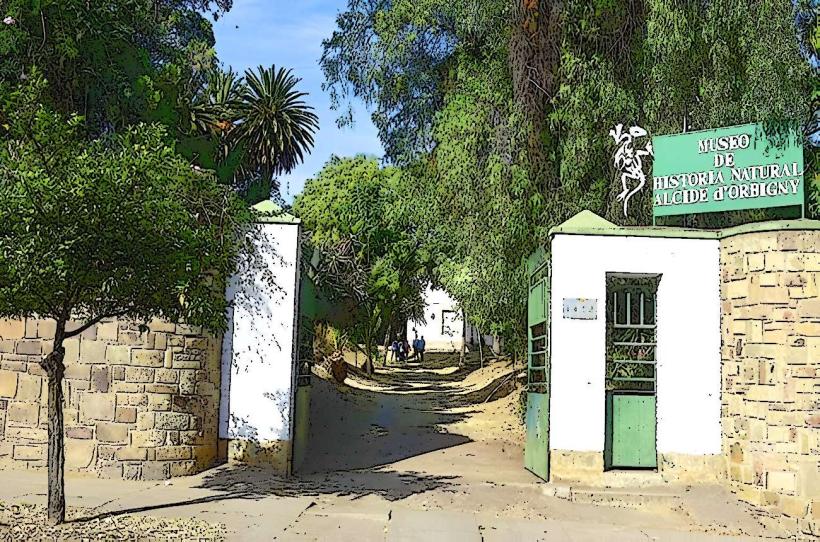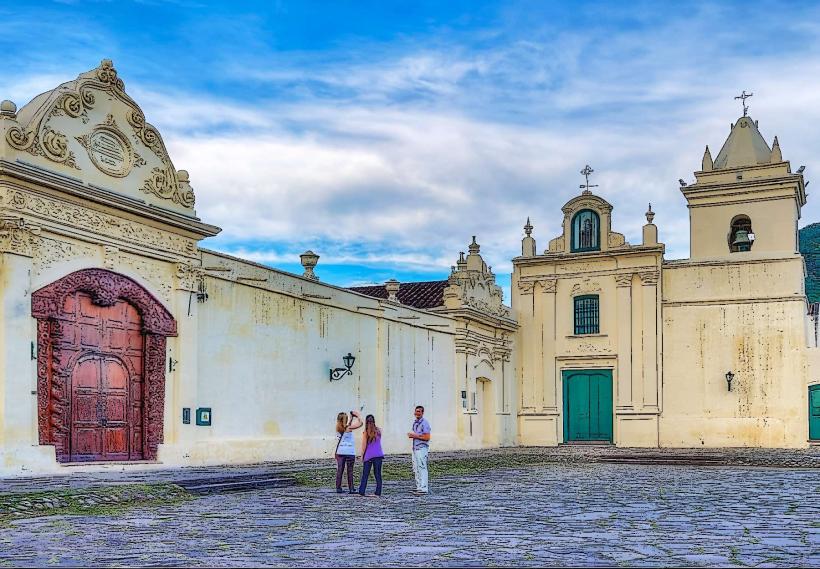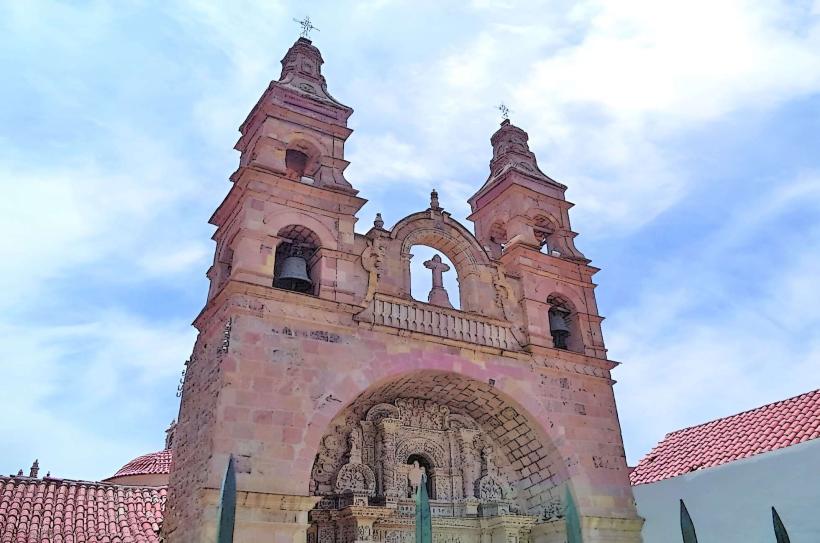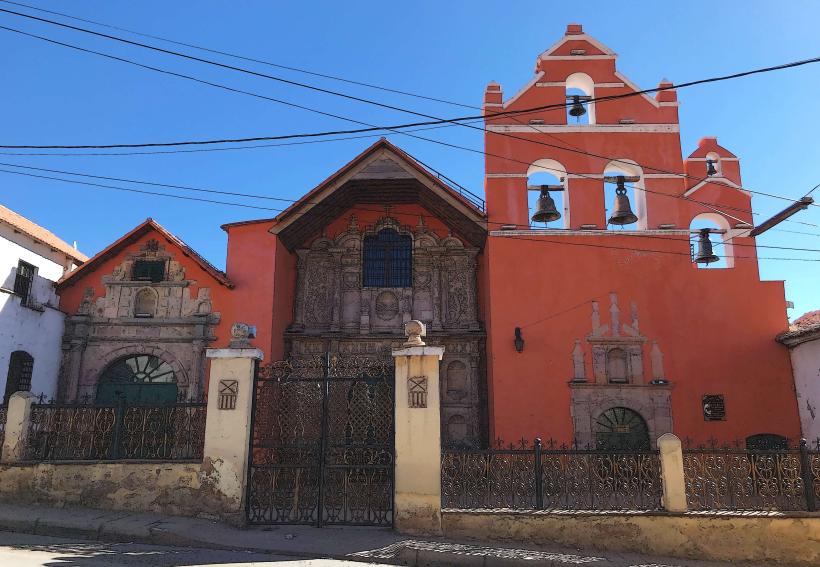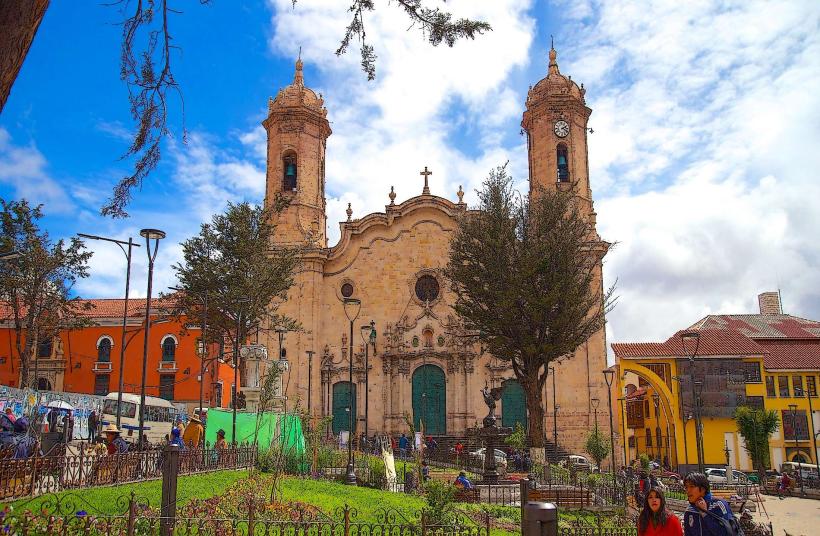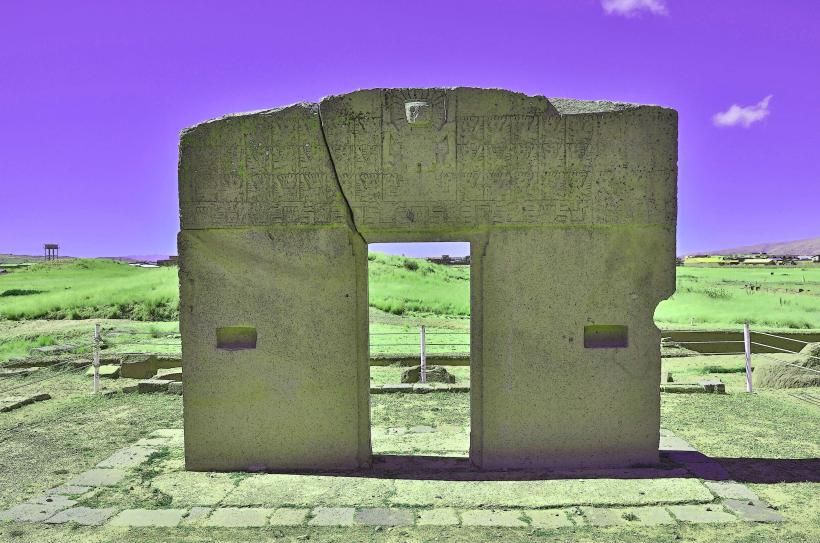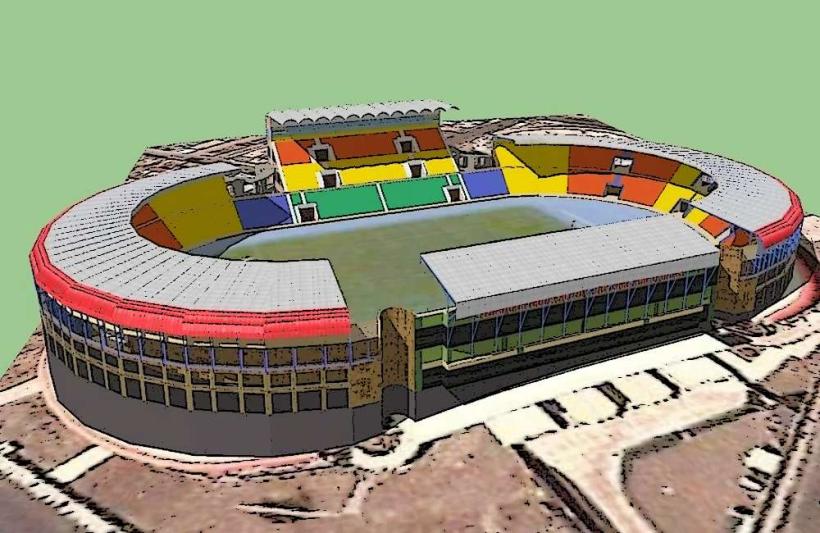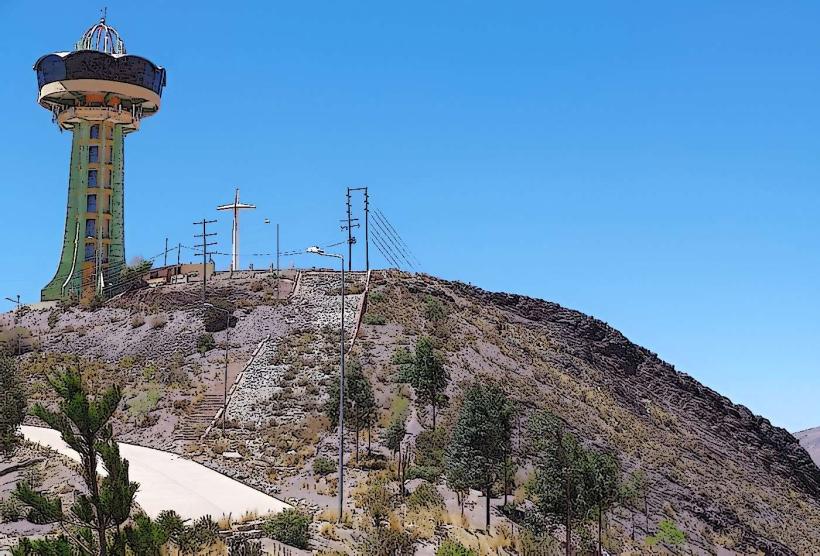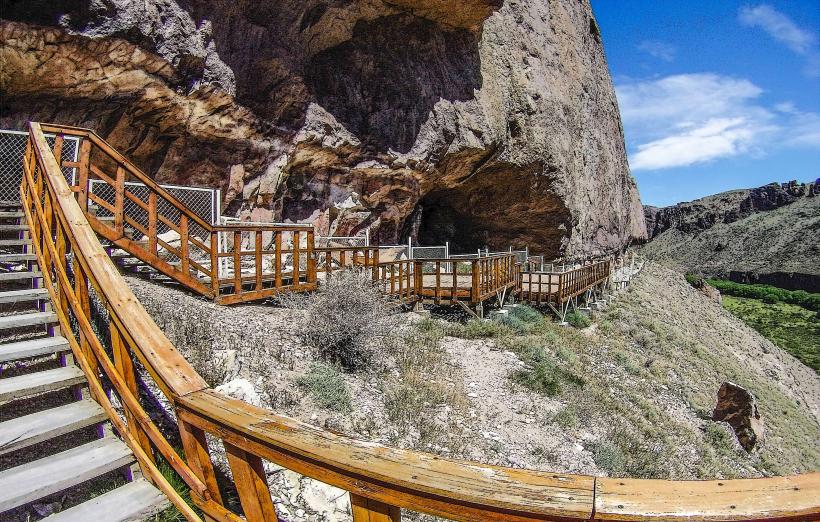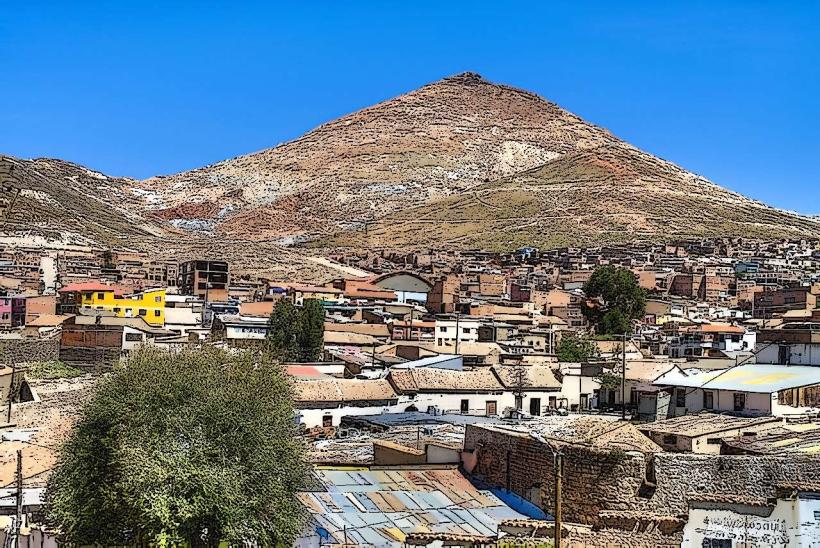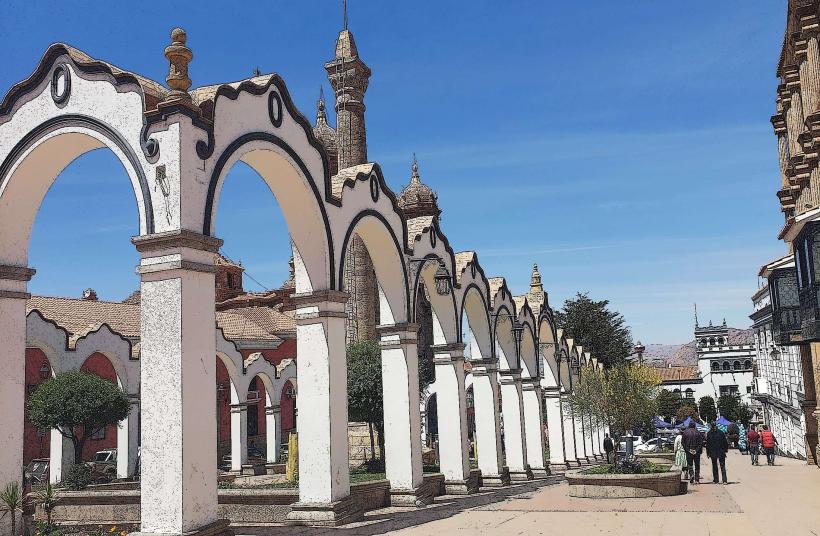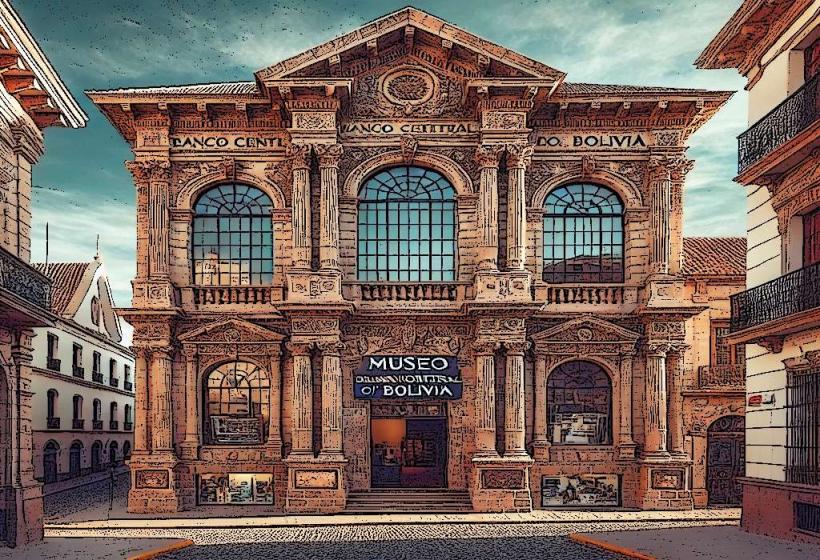Information
Landmark: Teatro de la Casa de la CulturaCity: Potosi
Country: Bolivia
Continent: South America
Teatro de la Casa de la Cultura, Potosi, Bolivia, South America
The Teatro de la Casa de la Cultura is a historical theater located in Potosi, Bolivia. It serves as a cultural hub within the city.
Visual Characteristics
The theater features a neoclassical facade constructed primarily from stone. Its exterior is painted a pale yellow, with white decorative elements around windows and doorways. The building has two main stories with a prominent central entrance. The roofline is adorned with simple cornices.
Location & Access Logistics
The Teatro de la Casa de la Cultura is situated in the central district of Potosi, approximately 0.2km southwest of the Plaza 10 de Noviembre. Access is via Calle Bolivar. Limited street parking is available in the vicinity, and public transport routes serving the city center stop within a 100-meter radius.
Historical & Ecological Origin
Originally constructed in the late 19th century, the building's initial purpose was as a private residence. It was later acquired and converted into a cultural center, with significant renovations occurring in the mid-20th century to adapt it for theatrical performances. The architectural style reflects the prevailing European influences of its construction period.
Key Highlights & Activities
The theater hosts a schedule of local and national theatrical productions, musical performances, and dance recitals. Visitors can attend scheduled public events. Information on current programming is typically displayed at the venue's entrance.
Infrastructure & Amenities
Restrooms are available for patrons. Limited seating areas provide shade within the immediate vicinity of the entrance. Cell phone signal (4G) is generally consistent in this urban area. Food vendors are present along the main streets surrounding the plaza.
Best Time to Visit
For attending performances, check the venue's schedule for evening events. Daytime visits are for architectural observation. The dry season, from May to October, offers more stable weather conditions for exploring the city.
Facts & Legends
A local anecdote suggests that during its time as a private residence, a hidden passage was used by its former occupants. While unverified, this story contributes to the building's historical mystique.
Nearby Landmarks
- Plaza 10 de Noviembre - 0.2km Northeast
- Casa Nacional de la Moneda - 0.3km North
- Iglesia de San Lorenzo de Carangas - 0.4km Northwest
- Cerro Rico Viewpoint - 1.5km Southwest

